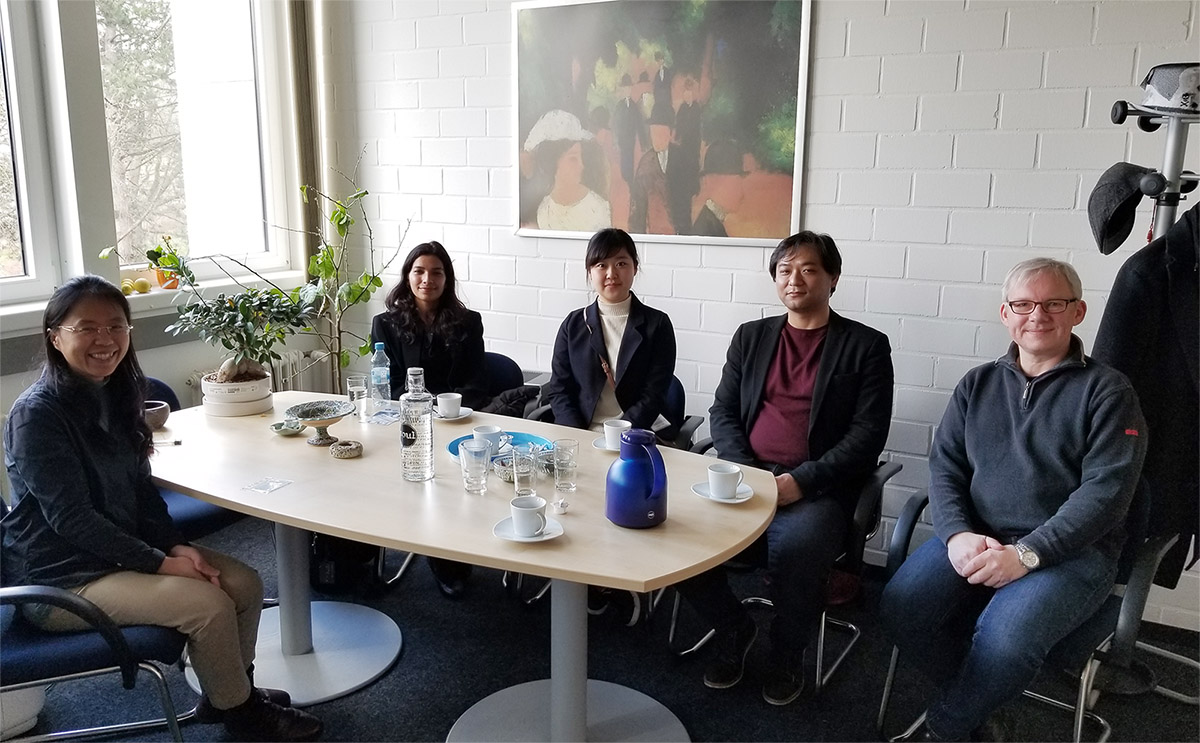Host Institution:
- Prof. Dr. med. Michael Nitsche
Scientific Director, Leibniz Research Centre for Working Environment and Human Factors - Dr. Min-Fang Kuo
Leibniz Research Centre for Working Environment and Human Factors
Duration of stay: February 24 to March 2, 2020
Participated Events:
- Department Seminar, Leibniz Research Centre for Working Environment and Human Factors, February 25, 2020
Aims:
- Establishing a new research collaboration and a reciprocal personal exchange system through it with the research group at Leibniz Research Centre for Working Environment and Human Factors in Germany
Motivation for application
How can animal model studies be translated in human social functions ?
We are currently investigating the neural mechanisms of social information processing and regulations of social behaviors under group environments in rodents and non-human primates. It has remained unclear how insights gained from such animal model studies can be translated in human social functions.
To address this issue, studies in human subjects with manipulations of neural systems using state-of-the-art techniques such as non-invasive brain stimulation and pharmacological treatments are required. Given that the research group in Germany has been conducting such human research, we applied for AIDA to initiate research collaboration with them.
Results
Discussing further research collaboration
We discussed details about a research project to be pursued in collaboration with Dr. Michael Nitsche, the director, and Dr. Min-Fung Kuo, a senior researcher, of the institute. We hope to start joint project at a certain point within this year, upon securing of research grants.
Extended networks with young researchers
We could also exchange ideas with many young researchers at the levels of graduate students and postdoctoral researchers. We have learned various disciplines of on-going research projects in the institute.
Learned new state-of-the-art research techniques
While staying at the institute, we could have opportunities to learn research techniques used in human studies, such as non-invasive human brain stimulation (transcranial direct current stimulation and transcranial magnetic stimulation), and how it can combine with pharmacological manipulations of neurotransmission.
Gave talks at the departmental seminar
In establishing research collaboration, it is important to make our research to be understood to collaborators. Thus, we could have a chance to give talks about our current research projects at the department seminar in the institute, held on February 25, 2020.
Outlook
Through visiting the institute in Germany at this time, in which we could discuss our future research collaboration in details, interact with many researchers, and learn new research techniques in humans subjects, we have now a clear research plan in future.
Upon securing a research grant, we would like to implement this research plan within this year, along with staying at the institute in Germany for a half to full year. We also would like to pursue challenges to continue research in Germany after earning degrees.
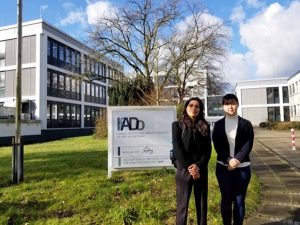
Leibniz Research Centre
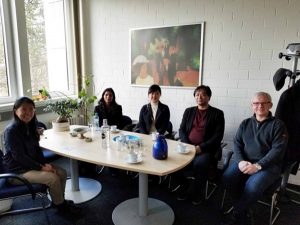
Meeting with Dr. Nitsche and Dr. Kuo
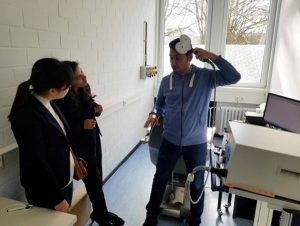
Learning non-invasive brain stimulation technique
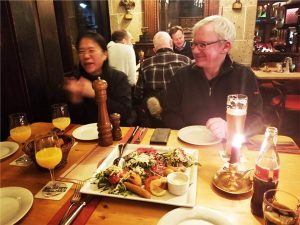
Dinner with Dr. Nitsche and Dr. Kuo

Presentation at the Seminar (Asaoka)
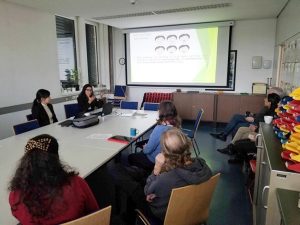
![[間:AI DA]: supporting international carrier development of early career researchers (ECRs)](/exchange/aida/wp-content/themes/kyoto-u-daad/img/logo-aida.png)
